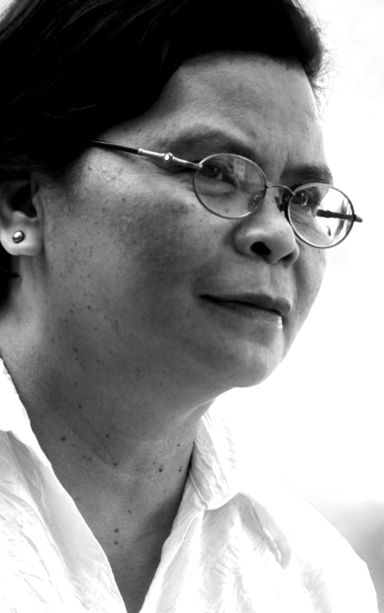
DELACERNA
There is a movement to propagate interfaith dialogue among Muslims and non-Muslims especially in the rebuilding efforts, not just of infrastructures, but also of community relationships after the unfortunate and lamentable Marawi Siege. Among the active propagators is Prof. Henry Francis Espiritu, Professor of Philosophy of the University of the Philippines Cebu and a scholar of Islamic Studies. His recent article entitled “The Qur-anic Perspective of Tolerance: Eminent Muslims in Their Encounter with Christianity” was recently published online in the New Age Islam website (www.newageislam.com) based in New Delhi, India, on October 23, 2017. Professor Espiritu requested for a space in this column that the article be echoed. Since the article is long, it will be featured in two parts.
First a background on the publisher. The New Age Islam website is a progressivist Muslim online institution based in New Delhi, India. It encourages progressive and pluralist thinking among Muslims worldwide by exposing them to news analyses, academic discourses and informed opinions on a variety of social, political, theological and spiritual issues related to Islam. It also provides a platform for debate on contemporary concerns facing Muslims, such as religious extremism, terrorism, peace-making, tolerance, interfaith dialogue and inter-religious relations with other faith-based groups. It brings together reports, features, academic articles and commentaries from a range of academic and journalistic sources, as well as original scholarship on Muslim affairs by experts in Islamic studies.
In the article, Professor Espiritu begins with the observation that despite globalization and its attendant efforts towards homogeneity, we are still living in a pluralist world. Tolerance is a foundational notion and a very relevant conceptual and practical prerequisite in establishing a pluralistic society. In pluralism’s point of view, people living in a society with varied religious, cultural and ideological commitments should enjoy equal rights and should not sacrifice their beliefs at the mercy of the hegemonic ideology of a particular State or of the dominant religion of the majority community. Tolerance and amity are all the more needed for the survival, cohesion and progress of its citizens.
The contemporary mass media portray Islamic societies to be intolerant of other’s religious and ideological persuasions. Professor Espiritu does not intend to examine whether the contemporary media is right or wrong in perceiving Islamic societies as intolerant; rather, he wants to show that authentic Islam — as contained in the pristine revelation of the Qur-an — promotes tolerance, harmony and goodwill of all peoples despite their differences. In the paper, Espiritu wants to reflect straight from the original source of Islamic tenets (i.e., the Qur-an) the tolerant attitude of Islam vis-à-vis religious, cultural and ideological diversities found in human societies, and show various thematic perspectives found in selected passages of the Qur-an that encourage tolerance and societal concord. He provides several historical instances of this “spirituality of tolerance” in the lives of selected Muslim savants and revered Islamic personalities of various epochs in their encounter with Christians.
For Professor Espiritu, tolerance presupposes plurality and diversity of identities. Pluralism further presupposes otherness, since diversity entails variety of identities and plurality of existing values. The opposite of pluralism is hegemony where one particular value is imposed and where there is an enforced totalization of expressions of life to make human values comply to a uniformed worldview and a set of praxis. Tolerance can only exist in a pluralist framework since pluralism celebrates in the difference of the “other.”
Secondly, Professor Espiritu considers tolerance as spirituality. “A person who can tolerate the ‘other’ is able to see the unitive Source who permits and wills these various differences and diversities as found in the world.” Spirituality or mysticism acknowledges God as the unifying Connectivity that deeply binds the whole of creation to Himself despite their apparent differences and multiplicities. Muslim and Christian mystics are well able to tolerate religious difference because in their inner beings, these mystics see the vision of the One, and this unitive vision enabled them to go beyond creed and dogmatic differences.
Tolerance in dealing with others, particularly the religious “other” is spirituality because by tolerating differences, one acknowledges the divine Wisdom of God who wills that these differences be made manifest. Tolerance permits us to experience the sympathetic feeling of divine interconnectedness among diverse creatures in the divine immanence of the Creator who permits these differences. At this point, Espiritu shares his reflection that authentic Islam, the Islam expressed in the Qur-an and the exemplary conduct set forth by Prophet Muhammad — in contrast with the rigid and hegemonic “Islam” as interpreted by “extremist” or “fundamentalist” hermeneutics — clearly advocates pluralism and encourages tolerance in its relationship with the religious “other.” (to be continued)
Disclaimer: The comments uploaded on this site do not necessarily represent or reflect the views of management and owner of Cebudailynews. We reserve the right to exclude comments that we deem to be inconsistent with our editorial standards.
